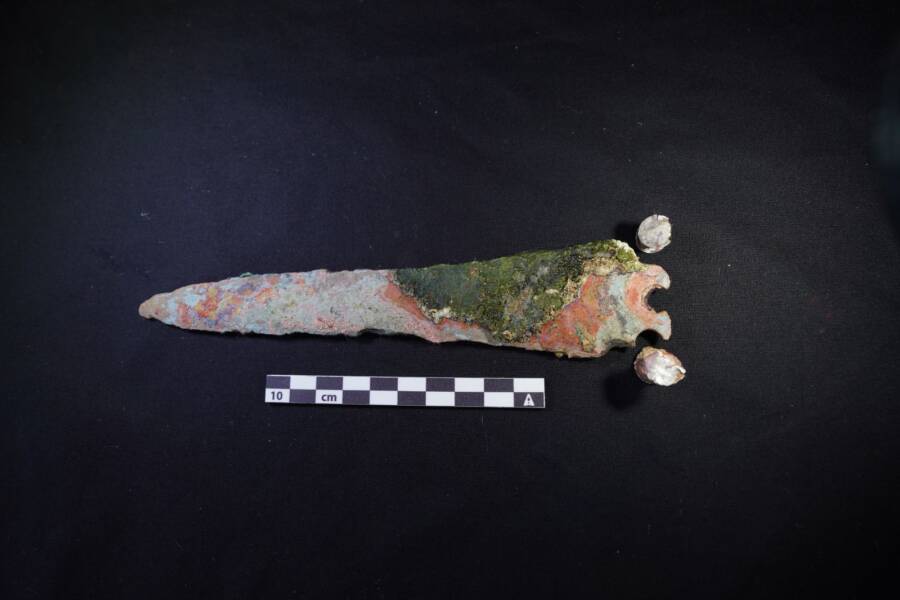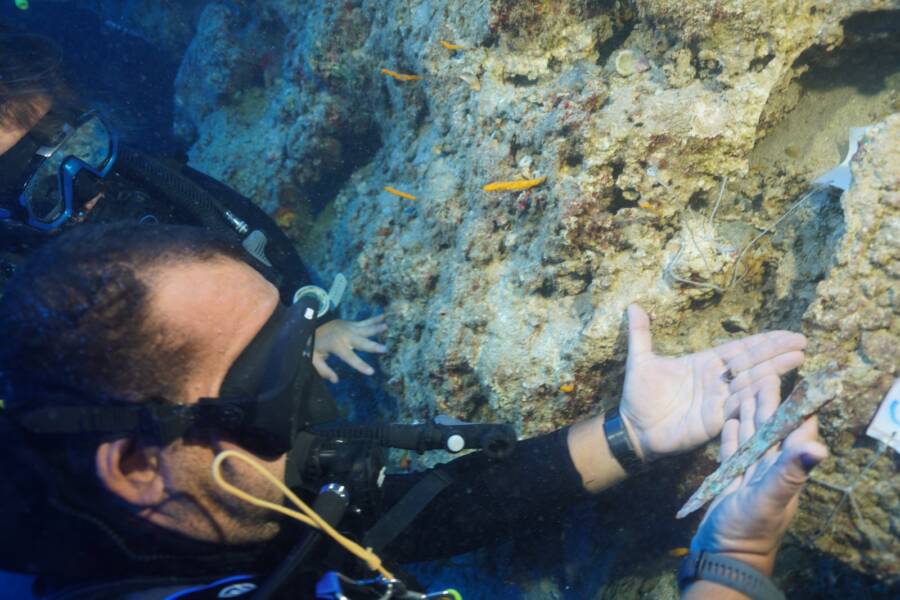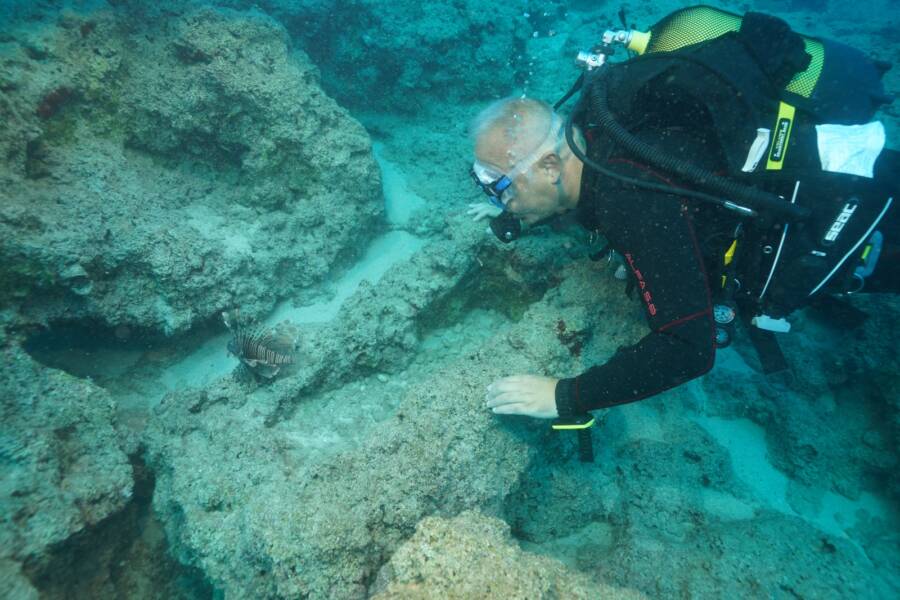Found at the site of one of the world’s oldest known shipwrecks, this seven-inch-long dagger provides fascinating new insight into the Cretan-Minoan civilization.

Türkiye Ministry of CultureThe Bronze-Age Minoan dagger recovered at the shipwreck site.
Ateam of archaeologists excavating the site of a sunken shipwreck recently announced the discovery of a remarkable 3,600-year-old Minoan dagger with silver rivets.
The dagger was uncovered amid ongoing underwater excavations off the coast of the Kumluca district in Antalya, Türikiye. The excavations began in 2019 under the leadership of Dr. Hakan Öniz, the head of the Department of Conservation and Restoration of Cultural Assets at the Faculty of Fine Arts at Akdeniz University.
The shipwreck was found at a depth of about 160 feet and previously garnered archaeological attention due to the presence of copper ingots found among the wreckage, likely originally from the Troodos Mountains in Cyprus. Dated to the 16th century B.C.E., the Kumluca wreck is considered one of the oldest in the world, providing a window into life in the Bronze Age.
The Discovery Of The Minoan Dagger Off The Turkish Coast

Türkiye Ministry of CultureThe moment of discovery.
The team of archaeologists announced the discovery of the ancient Minoan dagger in a translated statement from Akdeniz University.
The artifact was described in the post as a “silver-riveted bronze dagger belonging to the Cretan-Minoan civilization.”
According to experts, the dagger’s Cretan-Minoan origins indicate that the ship likely sank on its way to Crete. As such, this discovery offers new insight into the trade routes and cultural interactions on the Mediterranean thousands of years ago.
Likewise, deeper study and analysis of the dagger could reveal more details about warfare and diplomacy during the Bronze Age. It also offers hints about the craftsmanship and metallurgy skills of the Minoan civilization.
“The shipwreck is a candidate to be one of the most important discoveries not only in Türkiye but also in the world’s underwater archaeology,” said Mehmet Nuri Ersoy, the Turkish Minister of Culture and Tourism. “I would like to thank the teams of Akdeniz University and the Excavations and Research Department who reached the artifact, which unearthed traces of civilizations hidden in the depths of the Mediterranean, as a result of meticulous work.”
The Wreck Is Among The Oldest In The World

Akdeniz UniversityUnderwater archaeologists at the shipwreck site.
Even before the discovery of the Minoan dagger, the shipwreck had proven to be of great historical significance. Dated to the 16th century B.C.E., the 46-foot-long wreck is one of the oldest in the world and contained 1.5 tons of copper bullion, according to Ancient Origins.
These ingots would have been used in bronze production. An in-depth analysis revealed that the ingots likely originated in Cyprus, an area known for its copper mines.
For their part, the Minoans were skilled craftsmen and seafarers who ran a complex trade network throughout the Mediterranean, building relationships with regions like Egypt, the Levant, Anatolia (modern-day Turkey), Cyprus, and mainland Greece. In the Bronze Age, they used the island of Crete as a major trade hub.
Excavations are set to continue over the next five years. As researchers continue to investigate this shipwreck, perhaps even more revelations about the ancient world will come to light.